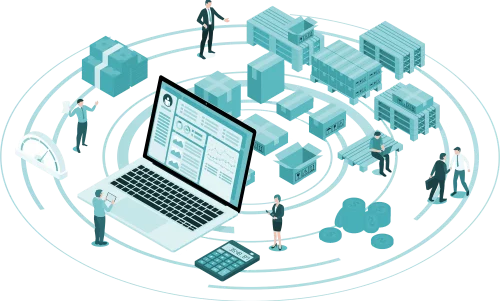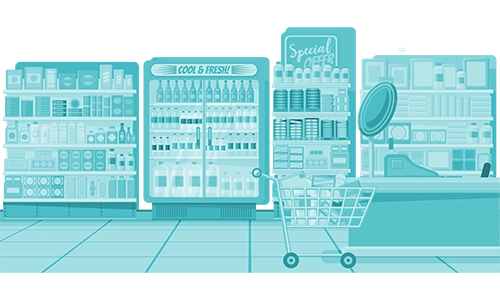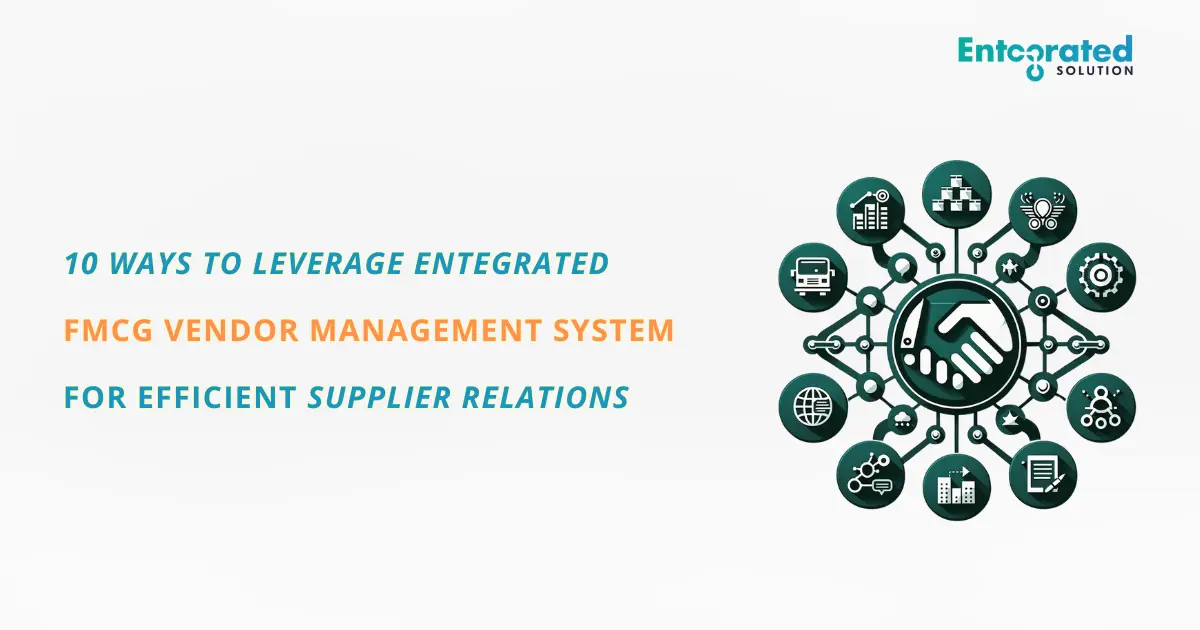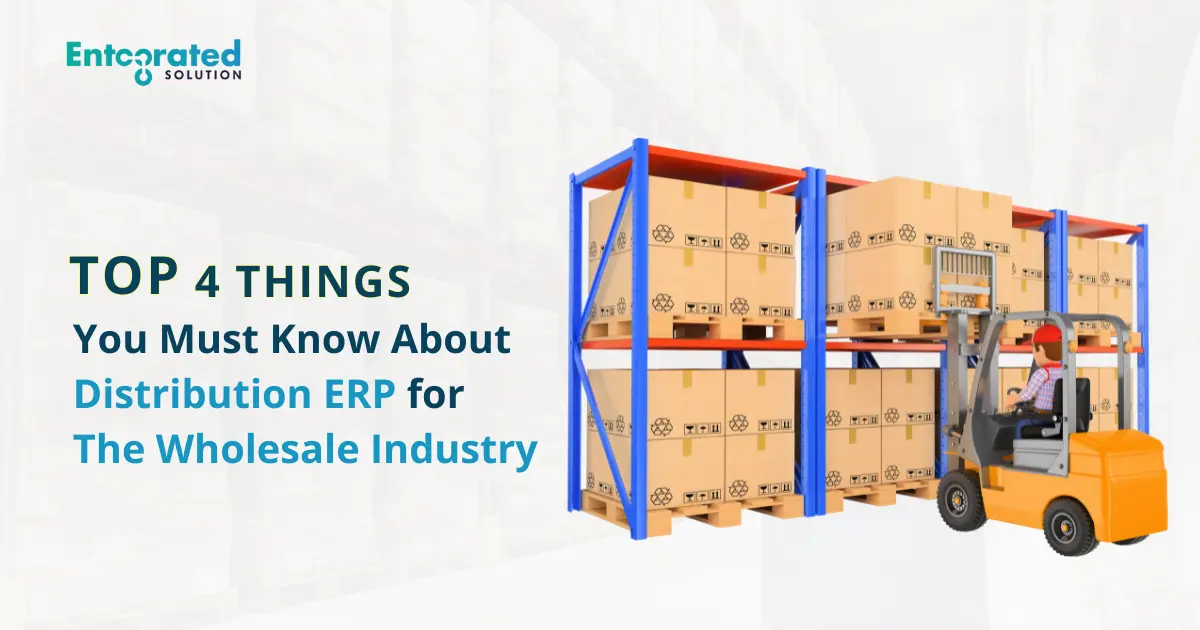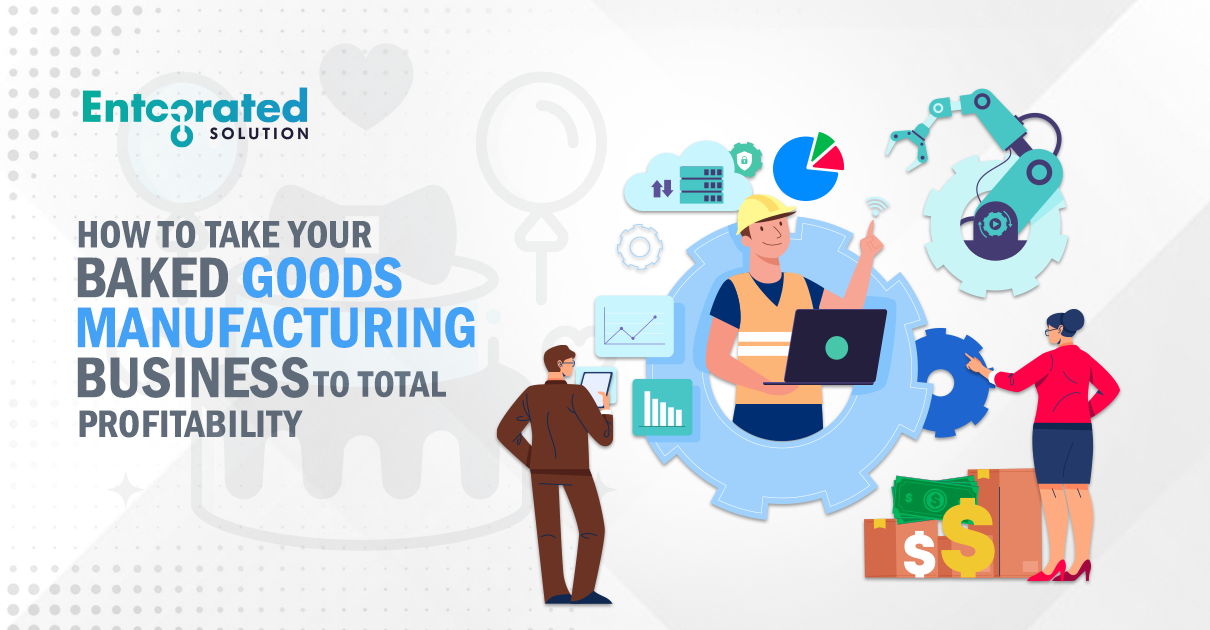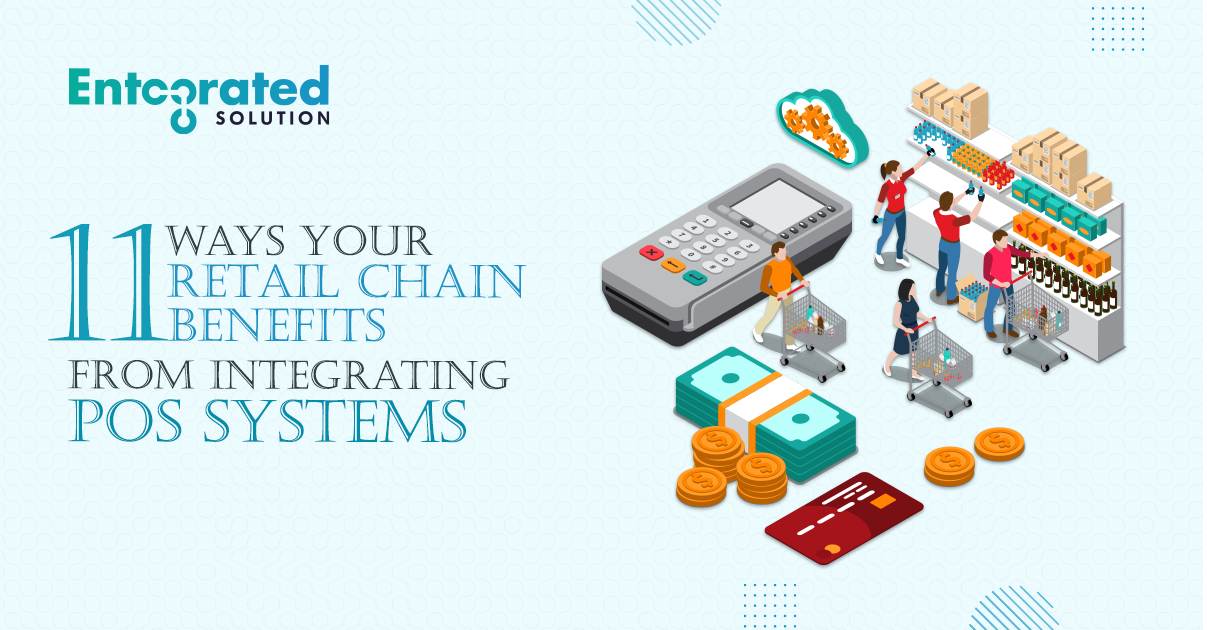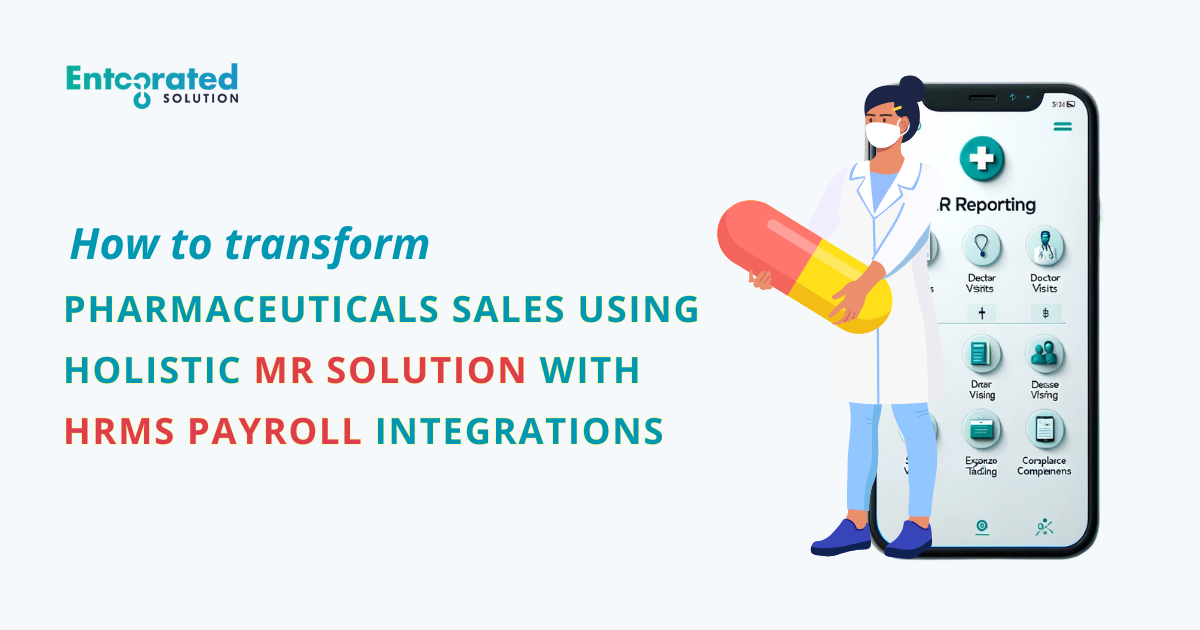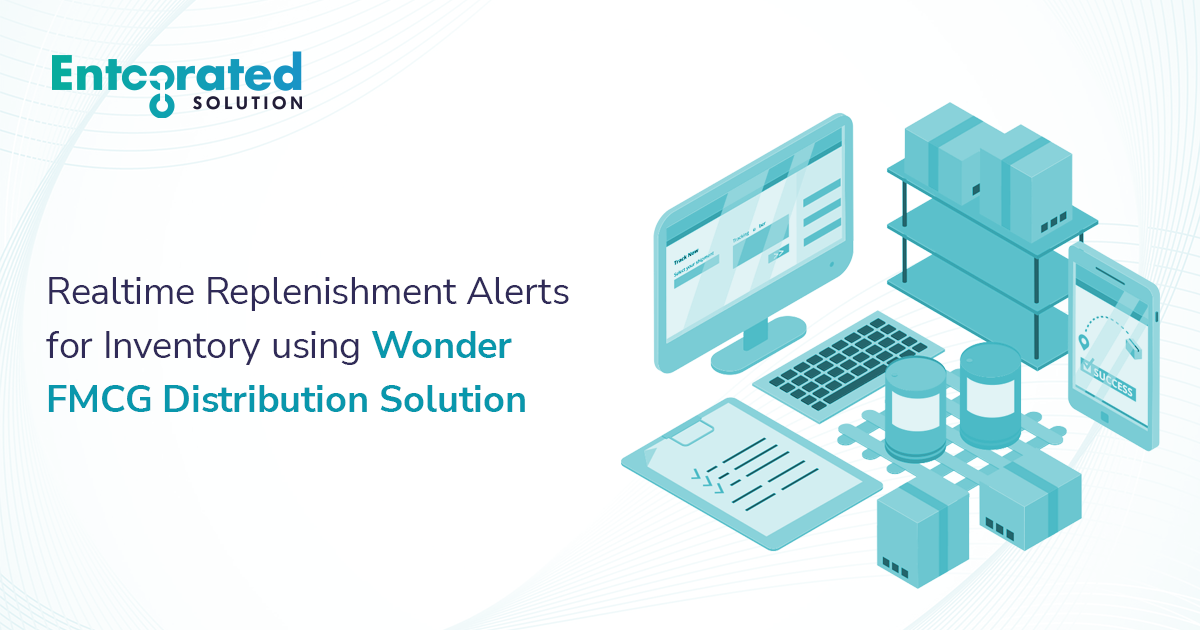The FMCG, Fast Moving Consumer Goods Industry, is indeed fast and the first mover has a major advantage. The pace is relentless and the margins are slim, the game is all about volume and timing, and so mastering the art of vendor management is a necessity—it becomes the ultimate cornerstone for gaining a competitive advantage. Enter, Entegrated Vendor Management Software for rewarding supplier relationships!
This sector, vibrant but fraught with challenges like constantly shifting consumer demands, intricate supply chains, and fierce market competition, demands not just resilience but strategic agility. No wonder FMCG companies are in the constant quest for systems like Entegrated Vendor Management Software that can not only withstand these pressures but also turn them into opportunities.
In fact, the synthesis of adaptability and integration is what makes IVMS for FMCG a beacon of hope in this complex landscape.
In this article, we delve into ten strategic ways in which FMCG companies can harness the power of IVMS for FMCG.
First, let’s get the basics out of the way.
What is vendor management in FMCG Industry?
Vendor management in the Fast-Moving Consumer Goods (FMCG) industry refers to the strategies and processes used to oversee and coordinate the relationships between a company and its suppliers of goods and services. This aspect of business is crucial in the FMCG sector due to several unique characteristics of the industry:
High Volume and Turnover
FMCG products usually have a high turnover rate, necessitating frequent restocking. Effective vendor management ensures that the supply chain is efficient and capable of meeting these rapid replenishment needs.
Complex Supply Chains
FMCG companies often deal with a large and diverse network of suppliers and distributors. Vendor management involves managing these relationships, ensuring timely delivery, quality control, and cost-effectiveness.
Quality Control
Maintaining consistent quality is essential in the FMCG industry. Vendor management includes ensuring that suppliers adhere to quality standards and regulatory requirements.
Demand Fluctuations
Consumer demand in the FMCG sector can be unpredictable and influenced by various factors like seasonality, trends, and economic conditions. Efficient vendor management helps companies to adapt quickly to these changes in demand.
Cost Optimization
Given the competitive nature and low-margin environment of the FMCG industry, controlling costs is essential. Effective vendor management helps in negotiating better prices, optimizing logistics costs, and managing inventory efficiently.
Strategic Sourcing
This involves selecting vendors not just based on cost but also their ability to provide strategic value like innovation, quality, reliability, and alignment with the company’s long-term goals.
Compliance and Sustainability
FMCG companies increasingly focus on ethical sourcing and sustainability. Vendor management includes ensuring that suppliers comply with environmental regulations and ethical standards.
Risk Management
Identifying and mitigating risks associated with suppliers, such as supply disruptions or reputational risks, is a critical component of vendor management.
In summary, vendor management in the FMCG industry is about creating and maintaining a strong, reliable, and ethical supply chain that can support the fast-paced and dynamic nature of the market, ensuring that products are available, affordable, and of high quality.
What is the difference between a supplier and a vendor in the FMCG industry?
In the Fast-Moving Consumer Goods (FMCG) industry, the terms ‘supplier’ and ‘vendor’ are often used interchangeably, but they can have distinct meanings depending on the context:
1. Supplier
A supplier in the FMCG industry is typically a company or individual that provides the raw materials or components needed to create a product. Suppliers are an integral part of the supply chain, contributing to the early stages of production.
Role
Suppliers are usually involved in the manufacturing process, providing essential inputs such as ingredients, packaging materials, or other raw materials required for product creation.
Relationship
The relationship with suppliers often focuses on ensuring the quality and timely delivery of these raw materials. Companies work closely with suppliers to manage the quality, cost, and sustainability of the materials supplied.
2. Vendor
A vendor is generally considered as any entity that sells goods or services to a company. In the FMCG industry, this can include a broader range of entities, not just those providing raw materials, but also those involved in various stages of the supply chain, including distribution and retail.
Role
Vendors can be involved in various stages of the product lifecycle, from production to the point of sale. This includes manufacturers (if outsourced), wholesalers, distributors, and retailers.
Relationship
The relationship with vendors often revolves around the purchase and delivery of finished goods or services. This can include negotiation on prices, terms of delivery, and after-sales service.
In essence, while a supplier is typically more involved in the early stages of the production process, providing the necessary inputs for manufacturing, a vendor can play a role at different points in the supply chain, including selling the finished product to the end consumer. However, in many business contexts, especially in the FMCG sector, these terms may be used interchangeably to refer to any entity that provides goods or services to a company.
Now that the basics are out of the way let’s get straight to exploring 10 Ways to Leverage Entegrated Vendor Management System for rewarding FMCG Supplier Relationships.
10 Ways to Leverage Entegrated FMCG Vendor Management System for rewarding Supplier Relationships
1.Seamless Integration with Software Ecosystems
Seamless integration of IVMS with existing software ecosystems is vital for efficient vendor management, ensuring smooth operations and data consistency across various platforms.
Effortless Compatibility
IVMS’s design facilitates effortless compatibility with existing enterprise resource planning (ERP) systems, supply chain management tools, and other software solutions in FMCG companies.
- Reduces the time and cost associated with integration
- Ensures consistent and reliable data across different platforms
- Streamlines operations by integrating various business functions
Unified Platform
The unified platform approach of IVMS eliminates the complexity and inefficiency of using multiple, disparate systems for vendor management.
- Significantly enhances operational efficiency
- Simplifies the training and usage process for staff
- Provides a holistic view of vendor management activities
As seamless integration forms the bedrock of effective vendor management, the next crucial aspect is the ability of IVMS to provide real-time data access and sharing.
2. Real-Time Data Access and Sharing
Real-time data access and sharing are pivotal for making informed decisions swiftly, ensuring that FMCG companies can respond agilely to market demands and inventory needs.
Instant Data Availability
IVMS offers immediate access to critical data, which is crucial for timely and informed decision-making.
- Accelerates the company’s response to changing market conditions
- Enhances inventory management by providing up-to-date information
- Facilitates quick adaptation to consumer demands and market trends
Collaborative Environment
IVMS fosters a transparent and collaborative environment by facilitating data sharing with suppliers.
- Strengthens trust and partnership with suppliers
- Promotes proactive problem-solving and joint decision-making
- Encourages a collaborative approach to managing supply chain challenges
With robust data capabilities in place, enhancing communication channels becomes the next focal point, further strengthening supplier relationships and operational efficacy.
3. Enhanced Communication Channels
Effective communication is the cornerstone of successful vendor relationships. IVMS enhances these channels, ensuring clarity and efficiency in interactions.
Streamlined Communication
Integrated communication tools within IVMS, such as messaging, emails, and alerts, streamline interactions between stakeholders.
- Keeps all parties informed and aligned
- Reduces potential misunderstandings and delays
- Ensures timely and effective communication across the supply chain
Feedback and Resolution
IVMS supports immediate feedback mechanisms and swift resolution of issues, bolstering supplier relations and operational efficiency.
- Fosters stronger, more resilient supplier relationships
- Enhances overall satisfaction and trust among stakeholders
- Promotes a culture of continuous improvement and responsiveness
With enhanced communication channels in place, the stage is set for delving into the automation of procurement processes, further driving efficiency and accuracy in vendor management.
4. Automated Procurement Processes
Automation in procurement processes is a game-changer in vendor management. IVMS brings efficiency and accuracy to purchasing tasks, from order creation to payment processing, drastically reducing the manual workload and potential for human error.
Process Automation
Automated procurement is the backbone of efficient vendor management. IVMS can handle routine tasks like order placements, tracking, and invoice processing.
- Reduces manual errors and administrative burden
- Enhances process efficiency and speed
- Frees up staff to focus on strategic initiatives
Predictive Ordering
Predictive analytics in IVMS uses historical data to forecast future needs, automating stock reordering to maintain optimal inventory levels.
- Ensures consistent product availability
- Prevents overstocking and stockouts
- Optimizes inventory management and reduces costs
Transitioning from the enhanced efficiency of automated procurement, the next critical aspect is leveraging the power of data. IVMS enables FMCG companies to make informed, data-driven decisions, a vital component in today’s fast-paced market.
5. Data-Driven Decision Making
In the data-centric world of FMCG, making decisions based on accurate, timely data is crucial. IVMS provides a wealth of data insights and analytics, empowering businesses to make strategic decisions that drive growth and efficiency.
Strategic Insights
Access to comprehensive data analytics enables FMCG companies to identify trends, evaluate supplier performance, and make informed strategic decisions.
- Facilitates better forecasting and planning
- Helps identify cost-saving opportunities
- Supports informed negotiations with suppliers
Performance Metrics
IVMS tracks key performance indicators (KPIs), offering valuable insights into supplier performance and procurement efficiency.
- Monitors supplier reliability and quality
- Assesses efficiency of procurement processes
- Aids in continuous improvement efforts
With a strong emphasis on data-driven decision making, the next logical step in leveraging IVMS is focusing on cost management. Effective cost management not only controls expenses but also optimizes the overall spend in supplier relationships.
6. Cost Management and Optimization
Cost management is a critical aspect of FMCG operations. IVMS offers tools and insights that help in meticulously tracking and optimizing expenses related to vendor management, leading to significant cost savings and enhanced profitability.
Expense Tracking
Keeping a close eye on all vendor-related expenses is essential. IVMS provides comprehensive tracking capabilities.
- Ensures transparent and accountable spending
- Identifies areas of unnecessary expenditure
- Aids in budgeting and financial planning
Optimization Tools
IVMS includes features to analyze spending patterns and identify opportunities for cost savings.
- Helps negotiate better terms with suppliers
- Suggests cost-effective alternatives and solutions
- Improves overall financial efficiency
Having established a strong framework for cost control, it’s vital to address compliance and quality control next. IVMS aids in maintaining high standards, ensuring that all vendor-related activities adhere to industry regulations and quality benchmarks.
7. Compliance and Quality Control
In the FMCG sector, compliance with regulatory standards and maintaining high-quality products are non-negotiable. IVMS plays a crucial role in ensuring that all vendor interactions and transactions meet these critical requirements.
Regulatory Compliance
Staying compliant with industry regulations is a complex but necessary task. IVMS simplifies this by keeping track of all relevant compliance requirements.
- Ensures adherence to legal and industry standards
- Reduces risk of non-compliance penalties
- Maintains corporate integrity and reputation
Quality Assurance
Quality control is integral to maintaining product standards. IVMS aids in monitoring and managing quality across the supply chain.
- Ensures products meet specified quality criteria
- Facilitates quick response to quality issues
- Enhances customer trust and satisfaction
With a firm grasp on compliance and quality control, shifting focus to risk management becomes imperative. Managing potential risks proactively is key to maintaining stable and efficient supplier relationships in the FMCG sector.
8. Risk Management and Mitigation
Effective risk management is essential for sustaining long-term success in the FMCG industry. IVMS provides tools to identify, assess, and mitigate potential risks in vendor relationships and supply chain operations.
Risk Identification and Assessment
Identifying potential risks early is crucial. IVMS offers predictive analytics and monitoring tools to foresee and evaluate risks.
- Alerts about potential supply chain disruptions
- Assesses vendor reliability and risk factors
- Enables proactive risk management strategies
Mitigation Strategies
Once risks are identified, IVMS helps in implementing effective mitigation strategies.
- Facilitates contingency planning and execution
- Provides alternative supplier options and solutions
- Ensures business continuity even in adverse situations
After addressing risk management, it is essential to consider the scalability and flexibility of IVMS. As FMCG businesses grow and evolve, their vendor management system must adapt accordingly.
9. Scalability and Flexibility
Scalability and flexibility are key features of any robust IVMS, allowing FMCG companies to adapt to changing business needs and market conditions without disrupting existing operations.
Adaptability to Growth
As businesses expand, their vendor management needs evolve. IVMS scales to accommodate growing numbers of vendors and increased transaction volumes.
- Supports business expansion without performance loss
- Easily integrates new vendors and products
- Customizes features to suit evolving business needs
Flexibility for Customization
Every FMCG company has unique needs. IVMS offers the flexibility to customize features and workflows to meet specific requirements.
- Tailors processes to specific operational needs
- Allows for integration of unique business rules
- Adapts to different market and regulatory environments
The final aspect, before concluding, is to focus on building sustainable supplier relationships. Long-term, mutually beneficial partnerships are the cornerstone of successful vendor management in the FMCG sector.
10. Sustainable Supplier Relationships
Sustainable, long-term relationships with suppliers are crucial for FMCG companies. IVMS fosters these relationships through transparent communication, consistent performance tracking, and collaborative problem-solving.
Building Trust and Transparency
Open and honest communication is the foundation of strong relationships. IVMS promotes transparency and trust between FMCG companies and their suppliers.
- Facilitates open communication channels
- Encourages sharing of performance data
- Builds a culture of mutual trust and respect
Long-Term Partnership Focus
IVMS helps in nurturing relationships that go beyond transactional interactions, focusing on long-term partnerships.
- Supports joint problem-solving and innovation
- Enables collaborative planning for mutual growth
- Strengthens loyalty and commitment on both sides
In conclusion, Integrated Vendor Management Software is not just a tool; it’s a strategic asset for FMCG companies. Using seamless integration, real-time data access, enhanced communication, and a host of other features, IVMS plays a pivotal role in strengthening supplier relationships, optimizing processes, and driving business growth.
As the FMCG landscape continues to evolve, leveraging the power of IVMS will be instrumental in navigating the challenges and seizing opportunities in the dynamic world of consumer goods.
Interested in streamlining your vendor onboarding and management, get a free consultation with our experts today.









